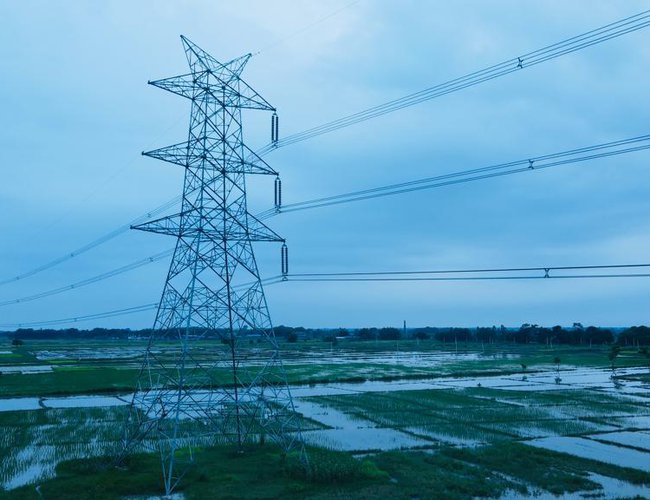
India has decided to promote cross-border transmission lines to carry more electricity during monsoons.
This decision was made during an energy secretary-level meeting between Nepal and India, where India expressed interest in taking more electricity from Nepal. Netra Gyawali, the Chief Executive Officer of National Broadcasting Grid Company Limited, stated that the Indian side is prepared to receive surplus electricity during droughts.
The Nepali side proposed exporting more electricity, which was accepted by the Indian side. Although the project proposed by Nepal is yet to be approved, the Indian side has shown positivity towards granting further permission. Gyawali mentioned that not all electricity will be taken, but the Indian side is open to the proposal. The old agendas have been continued.
Nepal has received permission to export up to 600 MW in India's day-ahead market, and a mid-term PPA has been agreed to buy 110 MW of electricity for five years. India has agreed to sell power to Haryana during the dry season through a mid-term PPA for the first time. On Thursday, Nepal and India signed a long-term electricity trade agreement.
On Wednesday, Nepal and India held a joint secretary-level meeting. The following day, an agreement was reached in the presence of India's Foreign Minister, Dr. S. Jaishankar.
Energy Secretary Gopal Prasad Sigdel and his counterpart Pankaj Aggarwal signed an agreement. According to the agreement, India will import 10,000 megawatts of electricity from Nepal over the next 10 years. However, Nepal has not yet approved the export of approximately 800 MW of electricity. Additionally, the Chinese company declined to purchase the 456 megawatts of Upper Tamakoshi electricity. Last monsoon, 500 megawatts of electricity went to waste. The Nepali side has requested additional permission, citing an expected increase in production and potential waste.
Currently, there is only one 400 kV transmission line, Dhalkebar-Muzaffarpur, for exporting electricity from Nepal to India, allowing for an exchange of approximately 600 MW. Both sides have agreed to increase the capacity of the transmission line to allow for the exchange of up to 800 MW.
The implementation of the Inruwa Purnia and New Lamki (Dodhara) and Bareilly 400 KV transmission lines for electricity import and export between Nepal and India is already decided.
The transmission lines will be built under the investment modality of the new Butwal-Gorakhpur transmission line. The investment modality will be finalized early. However, the modality could not be decided in this meeting. Although the construction is said to start immediately, the modality has not been finalized yet.
Additionally, there was a discussion about Nepal's electricity trade with Bangladesh, and a tripartite agreement has been reached. Nepal has agreed to export 50 MW of electricity to Bangladesh through the Indian transmission line. These three aspects are positive. Once the tripartite agreement is signed, exports will begin. The business plan, which was scheduled to start last summer, has not been completed yet.
Nepal has proposed building a dedicated transmission line in India for trading electricity with Bangladesh, but the Indian side has not responded yet.
- The Sentiment Of Monetary Policy Seems Focused On Increasing Eemand: FNCCI President Chandra Prasad Dhakal
- Jul 26, 2024
- Monetary Policy 081/82 Is Making The Economy More Dynamic: Governor Adhikari
- Jul 26, 2024
- Global IME Bank And Shashila Motors Signed Agreement Regarding Electric Vehicle loan
- Jul 26, 2024
- Lok Bahadur Thapa, permanent representative of the UN in New York, was appointed as the Vice President of ECOSOC
- Jul 26, 2024
- Leeladevi Gadtaula Became The First woman Chief Secretary
- Jul 26, 2024
















